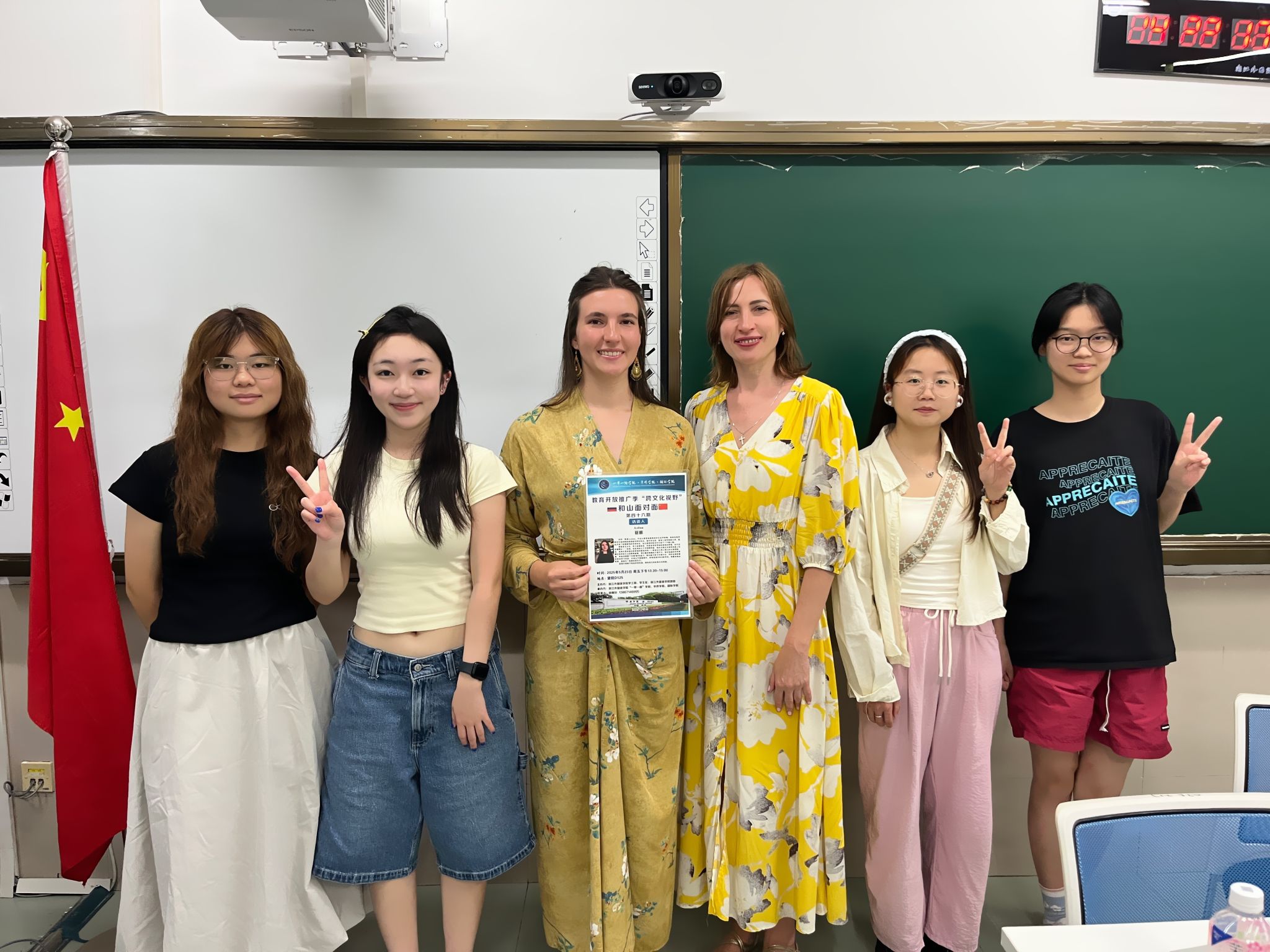为了进一步了解和关心国际留学生在校学习和生活情况、增进对中外大学生所在的国家文化的认识、培养学生国际视野、促进文化交流和文明沟通,国际学院推出了教育开放推广季“跨文化视野”之“和山面对面”系列访谈节目。5月23日下午西方语言文化学院法语专业的段雨杉同学对丽娜进行了访谈。
丽娜,来自俄罗斯,一名2025级汉语语言文化专业的学生。
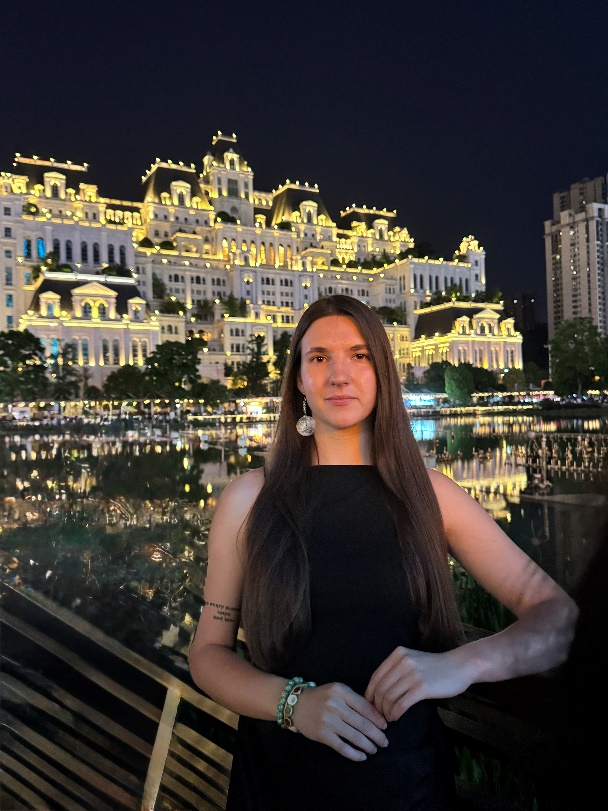
1.段雨杉:首先非常欢迎你来到这期的和山面对面!你能简短地介绍下自己吗?
丽娜:我来自俄罗斯的萨拉托夫 —— 伏尔加河上的一座美丽城市。毕业后,我考上了俄罗斯新大学,搬到了莫斯科。就在那时,我与中文结下了不解之缘。我一直梦想着了解新文化、学习新语言和旅行。现在我可以把所有的愿望都变成现实了。我在杭州已经 9 个月了,我的交换生生涯即将结束了。
段雨杉:在中国学习的这段时间里,你认为中俄课堂有什么不同之处吗?
丽娜:我在俄罗斯读本科那会儿,我们语言学专业课程设置可丰富了。除了主修的英语和中文,还要学音系学、语义学这些理论课程。但在这边交流项目完全不一样——所有课程清一色全中文!专业课用中文教,选修课还是中文,连体育老师都用中文喊口令。跟你说实话,这种全天候中文轰炸模式,硬生生把我的语言能力拔高了两三个档次!
Duan Yushan: First of all, welcome very much to this episode of Face to Face at Heshang! Can you briefly introduce yourself?
Алёна: I come from Saratov, Russia - a beautiful city on the Volga River. After graduation, I was admitted to the New University of Russia and moved to Moscow. It was then that I developed an unbreakable bond with the Chinese language. I have always dreamed of learning about new cultures, mastering new languages and traveling. Now I can turn all my wishes into reality. I have been in Hangzhou for 9 months and my exchange student life is coming to an end.
Duan Yushan: During your time studying in China, do you think there are any differences between Chinese and Russian classrooms?
Алёна: When I was an undergraduate in Russia, the curriculum for our linguistics major was very diverse. In addition to majoring in English and Chinese, we also studied theoretical courses such as phonology and semantics. But the exchange program here is completely different—all courses are in Chinese without exception! Professional courses are taught in Chinese, elective courses are also in Chinese, and even the PE teacher gives commands in Chinese. To be honest, this "round-the-clock Chinese immersion" has literally boosted my language proficiency by two or three levels!
2.段雨杉:在学习中文的过程中,你觉得哪个部分最难?
丽娜:若具体分析汉语学习难点,我认为首要障碍在于听力理解。当信息以连贯语流呈现时,尽管能清晰捕捉到个别词汇,但大脑难以像处理母语或英语那样迅速完成语义解码。例如在学术讲座中,即便每个专业术语单独出现时都熟悉,但组合成复合句后常出现理解延迟。汉语特有的声调系统,日常交流中常因调值偏差引发误解。俄语发音部位偏后与汉语的前置发音习惯形成冲突,特别是处理舌尖前音/z c s/与舌尖后音/zh ch sh/的对立时,需要持续进行发音监控。
2. Duan Yushan: During your process of learning Chinese, which part do you think is the most difficult?
Алёна: If we specifically analyze the difficulties in learning Chinese, I think the primary obstacle lies in listening comprehension. When information is presented in a continuous stream of speech, although individual words can be clearly captured, the brain struggles to decode the meaning as quickly as it does with one's native language or English. For instance, in academic lectures, even if each professional term is familiar when presented separately, there is often a delay in understanding when they are combined into complex sentences. The unique tone system of Chinese often leads to misunderstandings in daily communication due to slight deviations in tone values. The back placement of pronunciation in Russian conflicts with the front placement in Chinese, especially when dealing with the opposition between the front tongue tip sounds /z c s/ and the back tongue tip sounds /zh ch sh/, which requires constant pronunciation monitoring.
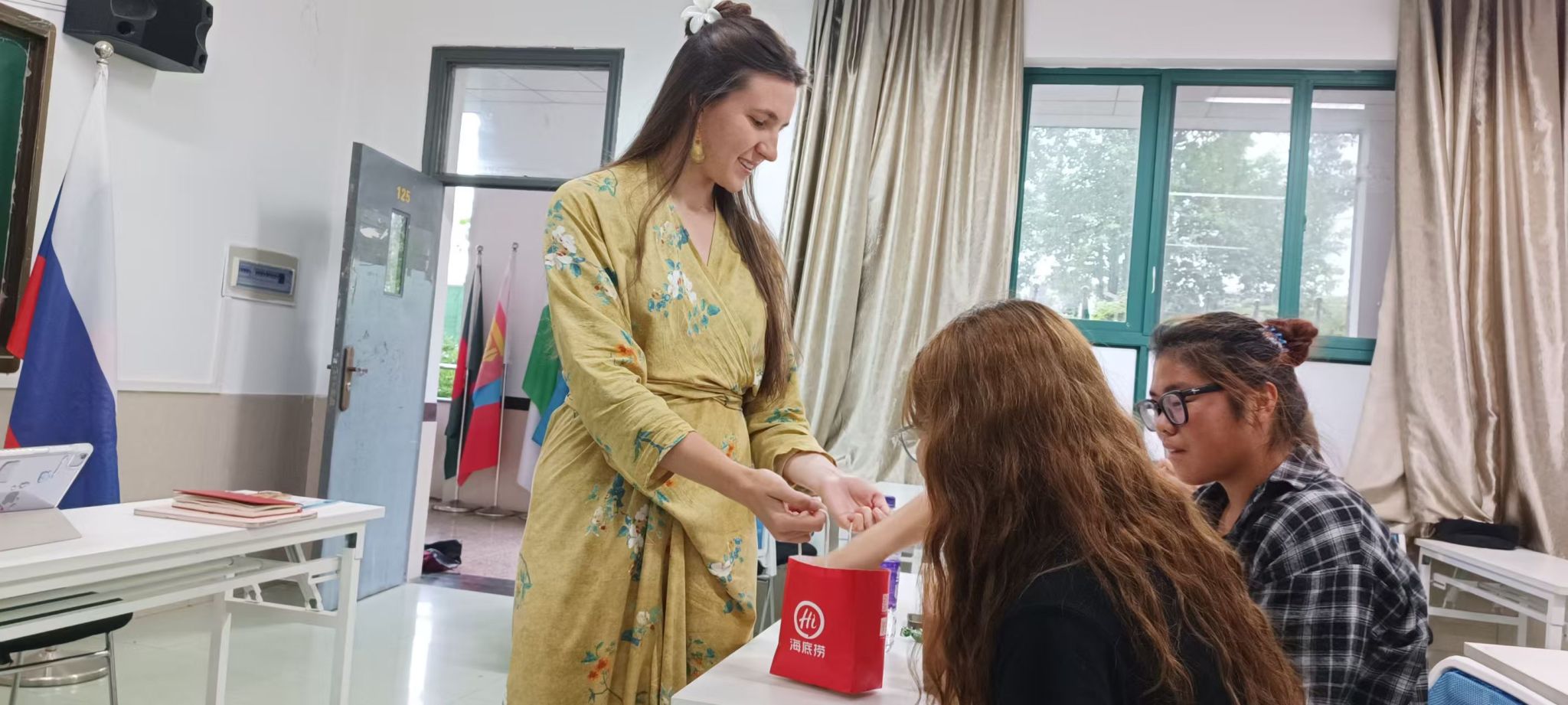
3.段雨杉:你最喜欢中国文化里的什么?有哪些是让你印象深刻的?
丽娜:中国文化与众不同很难选择一些东西,因为中国文化是很多不同的东西,从食物到旅行。我认为中国文化最重要的部分是人,因为他们与来自世界各地的人不同。怎么说呢?我认为中国人的文化和历史是不同的,与任何其他国家的文化和历史都不同且深刻。中国人非常聪明,非常勤奋,非常热情。他们是如此的友善。当我来到这里。很多人给了我很多帮助,因为我面临着很多困难,比如我不知道如何扫描二维码。在这里9个月之后,当我面对问题时,我仍然面临着那种善良,这是我在任何其他国家都从未遇到过的。因为中国人真的愿意提供帮助。举个例子,我在买票的时候遇到了我的朋友,去重庆的时候,门票信息和我的护照号码都搞错了。我想我不会飞到这座城市。我让她帮忙,她居然给这家公司打了一个小时的电话帮我解决问题,实在是太热心了。
Duan Yushan: What do you like most about Chinese culture? What are the things that impress you?
Алёна: Chinese culture is unique. It's hard to pick just a few things because it encompasses so many different aspects, from food to travel. I think the most important part of Chinese culture is the people, because they are different from people around the world. How should I put it? I think the culture and history of the Chinese people are different and profound, distinct from those of any other country. The Chinese people are very intelligent, hard - working, and passionate. They are so friendly. When I came here, many people gave me a lot of help because I faced many difficulties. For example, I didn't know how to scan QR codes. Even after 9 months here, when I encounter problems, I still experience that kind of kindness, which I have never encountered in any other country. Because the Chinese people are really willing to offer help. For example, I met my friend when I was buying tickets to Chongqing. The ticket information was wrong with my passport number. I thought I couldn't fly to that city. I asked her for help, and she actually called the company for an hour to help me solve the problem. She was so kind - hearted.
4.你体验过中国的传统节日吗,比如春节、元宵节、端午节等等?
丽娜:我在这里有一个寄宿家庭,我会和他们一起度过农历新年。所以我和他们一起度过了中国的除夕夜,我看着中国家庭如何收集他们吃的东西或传统的东西,他们做的传统的事情,比如红包,他们向孩子们鞠躬,向老人鞠躬,然后他们会获得这个红包。这对我来说非常有趣,因为我们在俄罗斯并不是这样做的。
段雨杉:那你平时也是住在寄宿家庭里吗,和他们一起生活?
丽娜:不,我不跟他们住在一起。我住在宿舍,但他们邀请我和他们共度时光。他们有一个小女儿,她现在四岁了,很可爱。
Duan Yushan: Have you experienced any traditional Chinese festivals, such as the Spring Festival, Lantern Festival, Dragon Boat Festival, etc.?
Алёна: I have a host family here, and I spent the Lunar New Year with them. So I celebrated Chinese New Year's Eve with them and observed how Chinese families prepare their meals and traditional rituals—for example, giving red envelopes (hongbao), bowing to children and elders, and then the children receiving the red envelopes. This was very interesting to me because we don't do this in Russia.
Duan Yushan: Do you usually live with the host family and share daily life with them?
Алёна: No, I don't live with them. I stay in a dormitory, but they invited me to spend time with them. They have a little daughter who is four years old now—she's very cute.
5.段雨杉:你能向我们描述你的一个工作日吗,会有什么课呢?
丽娜:我从周一到周四都有课,所以我会早起。然后在周五我们还有一个专门学习HSK(一个中文等级考试)的附加课程。有时在周五我也会和我的俄罗斯朋友上英语课。课后,我去图书馆度过剩下的时间。周末的时候,我和朋友会在杭州或周围的城市逛逛。
Duan Yushan: Can you describe one of your weekday schedules for us? What classes do you usually have?
Алёна: I have classes from Monday to Thursday, so I get up early those days. On Fridays, we have an additional class specifically for studying HSK (a Chinese proficiency exam). Sometimes I also take English classes with my Russian friends on Fridays. After class, I spend the rest of the time in the library. On weekends, my friends and I like to explore Hangzhou or visit surrounding cities.
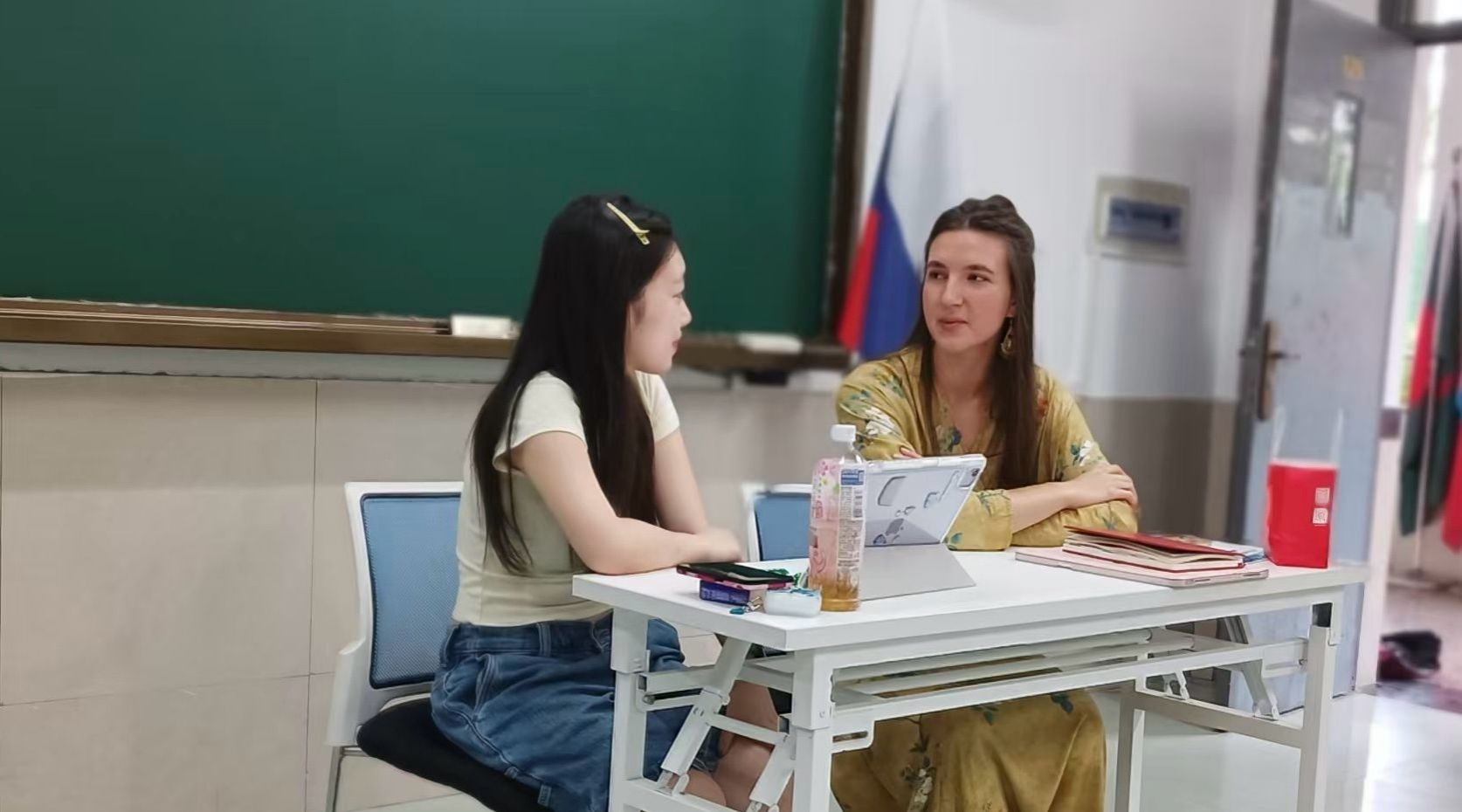
6.段雨杉:看到你刚刚介绍说旅行过很多城市,哪座城市是你最喜欢的?
丽娜:当然是杭州!这是我最喜欢的地方,因为我的家乡也靠近河边,我是一个喜欢水的人,被养在水边。所以对我来说,有机会拥有水,一个在城市中心有水和湖的大地方是一个很好的机会。喜欢杭州是因为我觉得它是一个神奇的地方,我可以在那里获得能量。
Duan Yushan: You just mentioned that you have traveled to many cities. Which city is your favorite?
Алёна: Of course, it's Hangzhou! It's my favorite place because my hometown is also near a river. I'm a person who loves water and was raised by the water. So for me, having the opportunity to be surrounded by water, a big place with water and lakes in the city center, is a great chance. I like Hangzhou because I think it's a magical place where I can get energy.
7.段雨杉:听说你最近在准备HSK5的考试,对你来说难度大吗?平时是怎么复习的呢?
丽娜:这对我来说很困难,因为它接近于语言的B2水平。有些人说它可能接近英语的一级语言水平,但实际上并不,因为汉语比英语更难。你可以表达你所说的,但不像母语人士那样流利。我有很多教科书训练写作,有很多错误,但我的朋友会帮助我。
段雨杉:这个考试是什么时候呢?
丽娜:在今年十一月,还有很充裕的时间让我复习,我很有信心!
Duan Yushan: I heard you're preparing for the HSK 5 exam recently. Is it difficult for you? How do you usually review?
Алёна: It's quite challenging for me because it's equivalent to the B2 level in language proficiency. Some people say it might be similar to the first advanced level in English, but actually, it's not, because Chinese is more difficult than English. You can express yourself, but not as fluently as a native speaker. I use many textbooks to practice writing, and I make a lot of mistakes, but my friends help me correct them.
Duan Yushan: When is the exam?
Алёна: In November this year. There's still plenty of time for me to review, and I'm very confident!
8.段雨杉:你能为我们介绍一个最喜欢的俄罗斯传统节日吗?
丽娜:这实际上是假期。这是新的一年。我认为对于中国人来说,这是我们真正等待的一年中的主要和部分,因为我们可以与家人团聚,因为我们可以在一起度过我们的时间。在那8或7天的时间里感受到温暖或家庭,对每个俄罗斯人来说真的很重要。俄罗斯新年也有一个电视节目,就像在中国的春晚一样,我们可以观看。我妈妈会做一大桌传统的俄罗斯美食,大家一起分享,好幸福。
Duan Yushan: Could you introduce one of your favorite traditional Russian festivals to us?
Алёна: Well, actually it's a holiday. It's the New Year. I think for Chinese people, it's also a very important time of the year that we really look forward to, because we can reunite with our families and spend time together. It's really important for every Russian to feel the warmth and the sense of family during those seven or eight days. There is also a TV program for the Russian New Year, just like the Spring Festival Gala in China, and we can watch it. My mother will cook a big table of traditional Russian food, and we share it together. It's so happy.
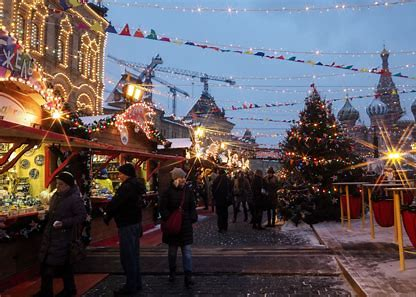
9.段雨杉:迄今为止,你认为学习中文的最大困难是什么?
丽娜:一定要坚持学习,不要放弃,因为有时候当你学习另一种语言时,你感觉不到自己在进步,这可能真的很难。所以学习每一种语言的主要部分是不要放弃。因为如果你知道你每天都会做一些事情,即使是一件小事,如果你可能有点累了,继续前进是非常重要的。不要放弃,因为有时这可能真的很难,要继续相信自己,相信这种语言的学习对你来说是有前途的。而这可以成为你未来职业生涯的重要组成部分,就是你的目标,你必须努力实现,将这个目标分解成一些小目标,并在这条路上实现所有目标。所以不放弃是学习中最大的也是最困难的部分。
Duan Yushan: So far, what do you think is the biggest difficulty in learning Chinese?
Алёна: The key is to persevere and not give up, because sometimes when you learn another language, you may not feel like you're making progress, and that can be really tough. So the most important thing in learning any language is to stay committed. Even if you're a bit tired, it's crucial to keep going—even if you only do a little each day. Don't give up, because there will be moments when it feels overwhelmingly difficult. You have to keep believing in yourself and trust that learning this language will have a promising future for you. It can become a vital part of your future career. Set your goals, work hard to achieve them, break them down into smaller targets, and accomplish each one along the way. So, staying persistent without giving up is both the biggest and hardest part of learning.
